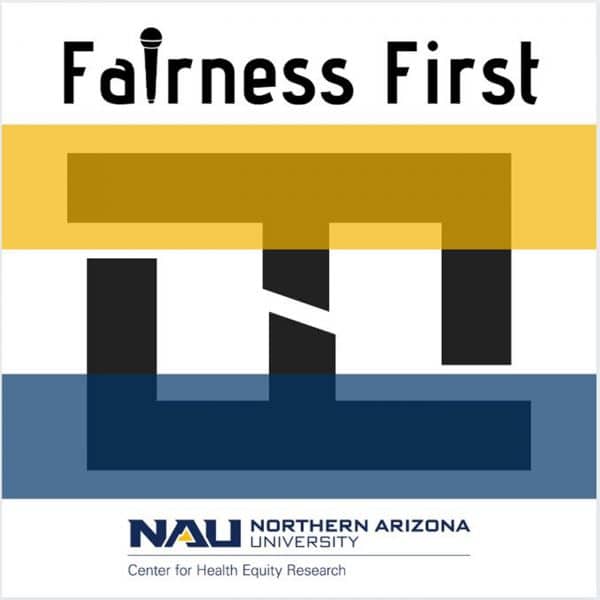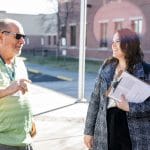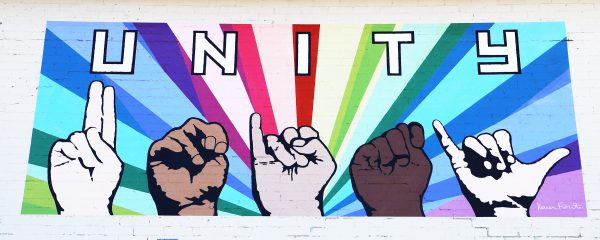Standing in solidarity
CHER’s statement on anti-racism
Our hearts break for the millions of families who have experienced the everyday violence, trauma, and terror that reverberates from institutionalized racism, white supremacy and forces of settler colonialism.
We condemn the relentless racial profiling, surveillance, harassment, degradation and excessive use of force performed by law enforcement on Black, Indigenous, Latino, and other people of color, and the complete and utter failure of our justice system and other institutions to provide retribution and solace to these victims of state sponsored violence.
We wholly reject such forms of violence with every sense of our being and recognize that we are complicit if we remain silent and inactive.
We mourn the loss of life of the hundreds of thousands of people of color who for hundreds of years have lived in states of terror and stress each and every day. We say the names of five recent deaths — George Floyd, Breonna Taylor, Ahmaud Arbery, Carlos Ingram-Lopez, Loreal Tsinigine — to remind ourselves that their deaths and their families’ pain must be remembered and used to mobilize us all to re-image and create a better world upheld by common principles of respect, relationality, reciprocity and balance.
We also recognize the physical and mental toll it takes to resist systems of oppression — a burden disproportionately carried by communities of color. We commit our efforts toward carrying a part of that burden, and most importantly, working to extinguish this burden for future generations and communities.
As a Center for Health Equity Research (CHER), many of us use our power and our privilege to systematically document and dismantle structural racism that drives social determinants of health, racial injustice, and health inequity. We do it in our homes, with our families and relatives, in our classrooms, with our peers, and through our research and advocacy. Through this work, we reflect on our Center’s purpose and convictions.
At CHER, we are learning and working with others to collectively respond and to focus our efforts to these issues in meaningful and coordinated ways. It is not enough to say “it is wrong.” We must act.
We do not need to ask people if they think structural racism or racism exists—we know that it does—and it has become even more apparent as we witness the devastating health inequities experienced by people of color in the COVID-19 crisis.
CHER’s commitment to racial equity
Please join us on our path toward building meaningful dialogue and everyday collective actions to dismantle structural racism and create a racially, economically, and socially just society.
Anti-racism, anti-discrimination resources
Following is a list of anti-racism resources that we have found helpful. This is an evolving compilation and is not a complete list of resources. We encourage you to reach out to us in a spirit of collaboration at CHER@nau.edu if you have any resources you would like to include.
Articles Accordion Closed
- What COVID Taught Us About Racism and What We Need to do Now, by Gary Lounge
- America’s Dirty Divide: How Environmental Racism Leaves the Vulnerable Behind, by Frida Garza
- Indigenous Americans Dying from COVID at Twice the Rate of white Americans, by Nina Lakhani
- Racism is the Public Health Crisis, COVID-19 is the Symptom, Experts Say, by Oyin Adedoyin
- Telling the Truth About Slavery Is Not ‘Indoctrination’ (Sept. 24, 2020)
- The Racist Removal Of Native Americans In California Is Often Missing From Wildfire Discussions, Experts Say (Sept. 16, 2020)
- ‘Long Overdue’: Lawmakers Declare Racism a Public Health Emergency| The Guardian (June 12, 2020)
- Track the Problem.’ Ibram X. Kendi on Using Data to Dismantle Structural Racism (Sept. 25, 2020)
- Ella Baker and the Black Freedom Movement (Mentoring a New Generation of Activists)
- “The Intersectionality Wars” by Jane Coaston | Vox (May 28, 2019)
- Tips for Creating Effective White Caucus Groups developed by Craig Elliott PhD
- ”White Privilege: Unpacking the Invisible Knapsack” by Knapsack Peggy McIntosh
- “Who Gets to Be Afraid in America?” by Dr. Ibram X. Kendi | Atlantic (May 12, 2020)
Videos Accordion Closed
- The Difference Between Being “Not Racist” and Anti Racist| TED 2020 Ibram X. Kendi (51:06)
- APHA Advancing Racial Equity, recorded webinar series
- How Racism Makes us Sick| David R. Williams (17:27)
- Health Inequity: American’s Chronic Condition?| Esteban López (12:01)
- Dr. Robin DiAngelo discusses ‘White Fragility’|Dr. Robin DiAngelo (1:23:30)
- The Root of Racial Injustice| Megan Ming Francis
- 50 Years of Racism––Why Silence Isn’t the Answer| James A. White Sr. (14:40)
- Black Feminism & the Movement for Black Lives: Barbara Smith, Reina Gossett, Charlene Carruthers (50:48)
- “How Studying Privilege Systems Can Strengthen Compassion” | Peggy McIntosh at TEDxTimberlaneSchools (18:26)
- Kiese Laymon with friends: How to Slowly Kill Yourself and Others in America (1:02:45 )
- Mahina Olelo Hawaii, bringing back the Hawaiian Language| Kai Kahele (5:19)
- Let’s Get to the Root of Racial Injustice|Meghan Ming Francis
Books Accordion Closed
- Where we Stand: Class Matters by Bell Hooks
- Black Feminist Thought by Patricia Hill Collins
- Eloquent Rage: A Black Feminist Discovers Her Superpower by Dr. Brittney Cooper
- Heavy: An American Memoir by Kiese Laymon
- How To Be An Antiracist by Dr. Ibram X. Kendi
- I Know Why the Caged Bird Sings by Maya Angelou
- Just Mercy by Bryan Stevenson
- Me and White Supremacy by Layla F. Saad
- Raising Our Hands by Jenna Arnold
- Redefining Realness by Janet Mock
- Sister Outsider by Audre Lorde
- So You Want to Talk About Race by Ijeoma Oluo
- The Bluest Eye by Toni Morrison
- The Fire Next Time by James Baldwin
- The New Jim Crow: Mass Incarceration in the Age of Colorblindness by Michelle Alexander
- The Next American Revolution: Sustainable Activism for the Twenty-First Century by Grace Lee Boggs
- The Warmth of Other Suns by Isabel Wilkerson
- Their Eyes Were Watching God by Zora Neale Hurston
- This Bridge Called My Back: Writings by Radical Women of Color by Cherríe Moraga
- When Affirmative Action Was White: An Untold History of Racial Inequality in Twentieth-Century America by Ira Katznelson
- White Fragility: Why It’s So Hard for White People to Talk About Racism by Robin DiAngelo, PhD
- The Color of Law A Forgotten History of How Our Government Segregated America by Richard Rothstein
- We Can’t Breathe by Jabari Asim
- Why I’m No Longer Talking to White People About Race by Reni Eddo-Lodge
- Policing the Black Man by Angela J. Davis, Bryan Stevenson, Marc Mauer, Bruce Western, Jeremy Travis
- I Can’t Breathe by Matt Taibbi
- They Can’t Kill Us Until They Kill Us by Hanif Abdurraqib
- The Fire This Time––A New Generation Speaks about Race by Jesmyn Ward
- How We Fight White Supremacy A Field Guide to Black Resistance by Akiba Solomon
- Between the World and Me by Ta-Nehisi Coates
- On the Other Side of Freedom by DeRay Mckesson
- Stamped from the Beginning by Ibram X Kendi
- The Hate U Give by Angie Thomas
- The Watsons Go to Birmingham–1963 by Christopher Paul Curtis
- An Antiracist Reading List – New York Times
- Freedom Over Me by Ashley Bryan
- Last Stop on Market Street by Matt de la Peña
- Something Happened in Our Town: A Child’s Story About Racial Injustice by Marianne Celano, PhD, ABPP, Marietta Collins, PhD, and Ann Hazzard, PhD, ABPP
- All are Welcome by Alexandra Penfold
For children:
- Coretta Scott King Book Award Winners: books for children and young adults
- 31 Children’s books to support conversations on race, racism and resistance
- Antiracist Baby by Ibram X. Kendi
- Ghost Boys by Jewell Parker Rhodes
- Thunder Boy Jr by Sherman Alexie
- Separate Is Never Equal Sylvia Mendez and Her Family’s Fight for Desegregation by Duncan Tonatiuh
- American Born Chinese by Gene Luen Yang
- Brown Girl Dreaming by Jacqueline Woodson
- The Crossover by Kwame Alexander
- A Is For Activist by Innosanto Nagara
- It’s Okay To Be Different by Todd Parr
- Same, Same But Different by Jenny Sue Kostecki-Shaw
- Hair Love by Matthew A. Cherry
- I Am Enough by Grace Byers
- Amazing Grace by Mary Hoffman
Films and documentaries Accordion Closed
- Black Feminism & the Movement for Black Lives: Barbara Smith, Reina Gossett, Charlene Carruthers
- “How Studying Privilege Systems Can Strengthen Compassion”| Peggy McIntosh at TEDxTimberlaneSchools
- Watch This Documentary on Braids and Appropriation in America | ELLE
- A conversation with President Obama: Reimagining Policing in the Wake of Continued Police Violence | Obama Foundation
- We Need to Address the Real Roots of Racial Violence Megan Ming Francis at TEDxRainier
- ASK YOURSELF | Authentic Voices by Lauryn Whitney
- George Floyd, the Minneapolis Protests | The Daily Show
- Black Power Mixtape: 1967-1975 — Available to rent
- Clemency (Chinonye Chukwu) — Available to rent
- Just Mercy (Destin Daniel Cretton) — Available to rent
- Selma (Ava DuVernay) — Available to rent
- The Black Panthers: Vanguard of the Revolution — Available to rent
Other resources Accordion Closed
- Columbia University Irving Institute for Clinical and Translational Research
- PBS series, Racism in America
- Health and Healthcare Disparities resources (complied by Catherine Lockmiller, Health Science Librarian at the Phoenix Bioscience Core)
- Anti-Racism Project
- Jenna Arnold’s resources (books and people to follow)
- Rachel Ricketts’ anti-racism resources
- Resources for White People to Learn and Talk About Race and Racism
- Save the Tears: White Woman’s Guide by Tatiana Mac
- The [White] Shift on Instagram
- “Why is this happening?” — an introduction to police brutality from 100 Year Hoodie
- Zinn Education Project’s teaching materials
- The COVID Racial Data Tracker
- Race & Equity Resources, University of Washington
- Home Word: Anti-Racism Resources
NAU trainings through the Office of Inclusion Accordion Closed
For NAU trainings through the Office of Inclusion, please visit their services page.





